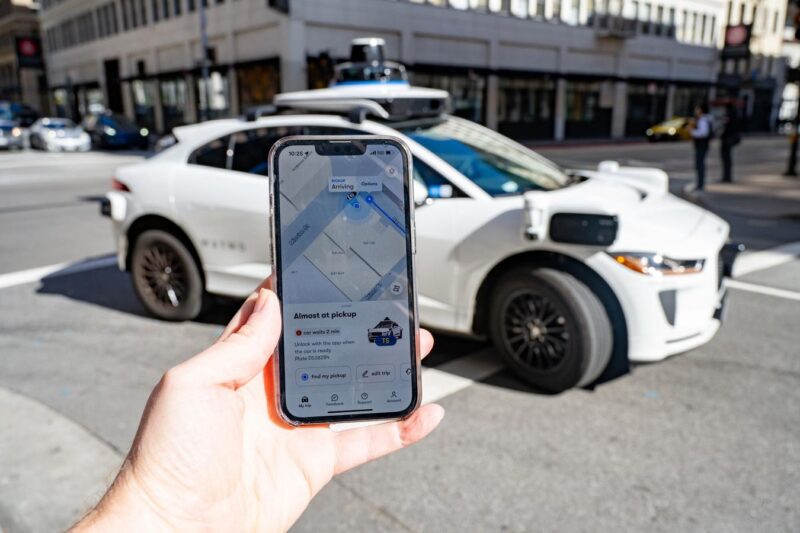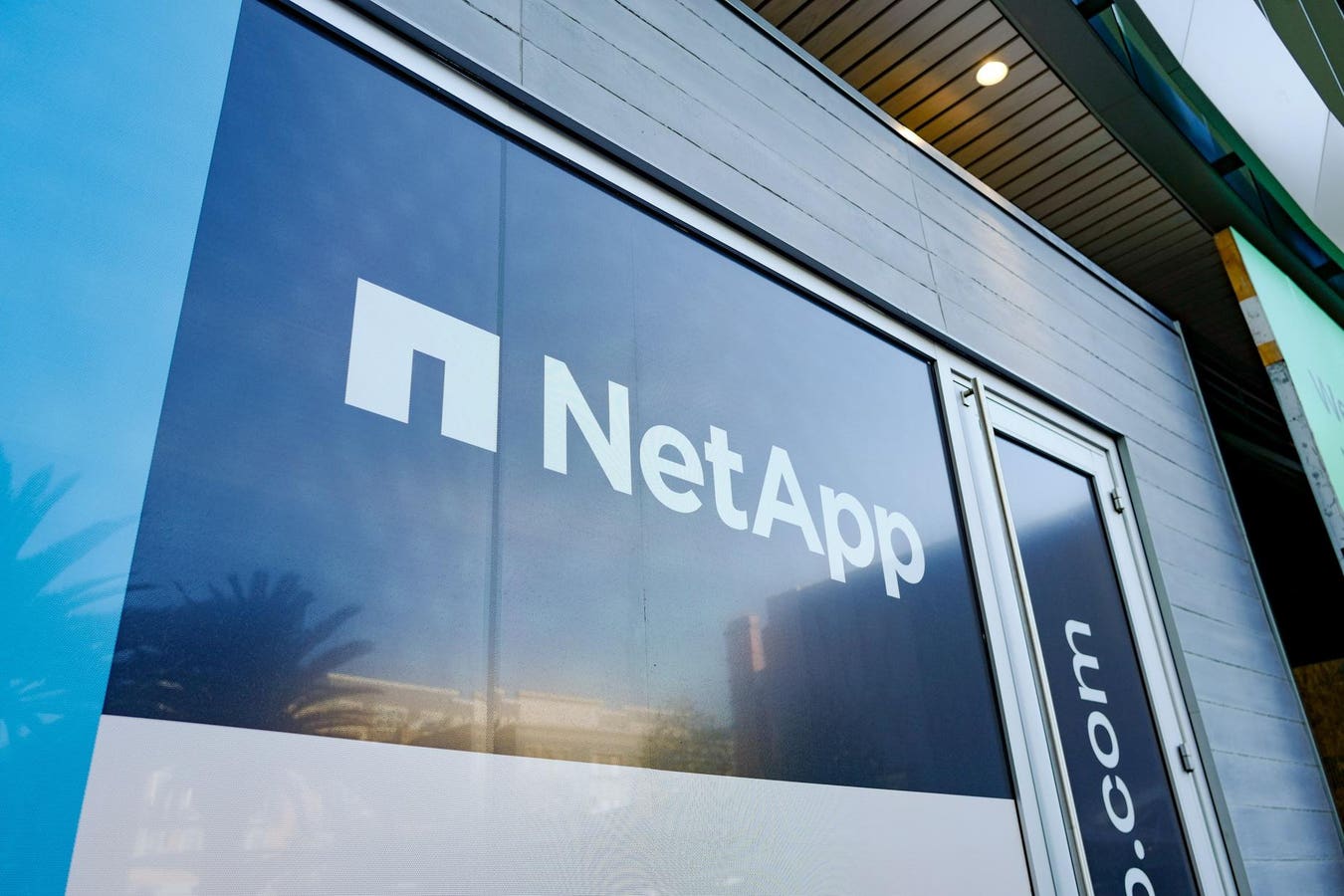Person’s hand holding an iPhone with the Waymo One app, hailing a Waymo self driving car, which is seen driving up to the curb as text reading ‘Almost at Pickup’ appears in the app. (Photo by Smith Collection/Gado/Getty Images)
Gado via Getty Images
Driverless robotaxis aren’t just for private individuals, it would seem — Waymo thinks businesses should sign up to offer autonomous rides as a perk, to help improve disability access, and to meet additional transportation needs.
It’s newly launched “Waymo for Business” is similar to setting up a corporate account with Uber or your local cab company, marking the Alphabet-owned company’s foray into business travel. That could involve commuting, business travel, or courtesy cars for events, the company suggested.
In a blog post, Waymo said it had already run pilots of the service with “a variety of organisations”, including companies, universities, and events firms, one of which appears to be used-car company Carvana.
The service is limited to San Francisco, LA and Phoenix to start, with Waymo saying that nearly one in six riders in those cities use the robotaxis to commute to work or school.
“This includes all types of schedules from early morning rush to students, shift workers, and healthcare staff who need a trusted ride home late at night,” the company said in a blog post, with TechCrunch reporting that it plans to expand the corporate service to Washington and Miami once commercial services are up and running in those regions.
Managing corporate robotaxi use
The aim with Waymo for Business is rather than an individual book and pay for that ride via an app as they do now, they can book via the app and have the organisation pay for it, or part of it.
Waymo self-driving car on a busy street with public transit in the background. (Photo by Smith Collection/Gado/Getty Images)
Gado via Getty Images
Companies can manage robo-ridehailing via a business portal with reporting tools to set and track budget and monitor ride activity.
There’s also the ability to offer customisable promotional codes, such as for discounts for events — however, The Verge reported that Waymo wasn’t offering discounts on rides for those enrolled in the Business plan, though companies can choose to cover some of the costs themselves.
Why Waymo over existing ride-hailing or cab firms? Waymo shared a quote from Caravana that said event attendees liked the “premium and personal experience of an autonomous ride,” while Waymo argued by allowing workers to commute without driving, they could work on the way — or relax, too.
Expanding accessibility with robotaxis
Another suggestion is that this could benefit those without the means or ability to drive. “Embrace cutting-edge technology to expand mobility access, particularly for those in your community who can’t drive or don’t have access to a vehicle,” Waymo noted in its blog post.
Of course, one alternative could be to take the bus, but the three cities listed are full of areas with poor public transport service — either transport deserts without coverage or inefficient, slow routes. Indeed, south of San Francisco, Stanford University offers its own local bus service to make up for a lack of local routes, while Google, also owned by Alphabet, runs private bus shuttle services to help its staff reach offices in Silicon Valley.
Anyone interested in trying the programme can register here.
Waymo is set to test airport pickups in San Francisco, as it methodically expands to cities across the US — with suggestions Waymo is working on setting up services in London ahead of the UK government’s approval of driverless car trials next spring. That said, a report earlier this year suggested many people aren’t actually that keen on robotaxis, so perhaps companies might be wiser sticking with traditional services for now.









